Consequences of Drinking Too Much Diet Coke
A single 12-ounce can of soda packs an average of 39 grams of sugar—that's more than three times the amount you'd get in a Krispy Kreme glazed donut, and yet, we're still drinking the stuff by the gallon. The CDC reports that 49% of adults in the U.S. drink at least one regular soda or other sweetened beverage per day, which adds up to a ton of calories, sugar, and extra weight per year.
While soda sweetened with sugar or high-fructose corn syrup comes with its own risks—from increased risk of ailments like diabetes and tooth disease—the diet stuff isn't much better. In fact, research suggests that diet soda drinkers have an increased likelihood of weight gain and increased waist measurements. Not great news. So, if you're eager to get on the right track toward healthier habits, check out these potential side effects of drinking soda that will make you quit the sweet stuff for good. Then, be sure you stock up on The 7 Healthiest Foods to Eat Right Now.
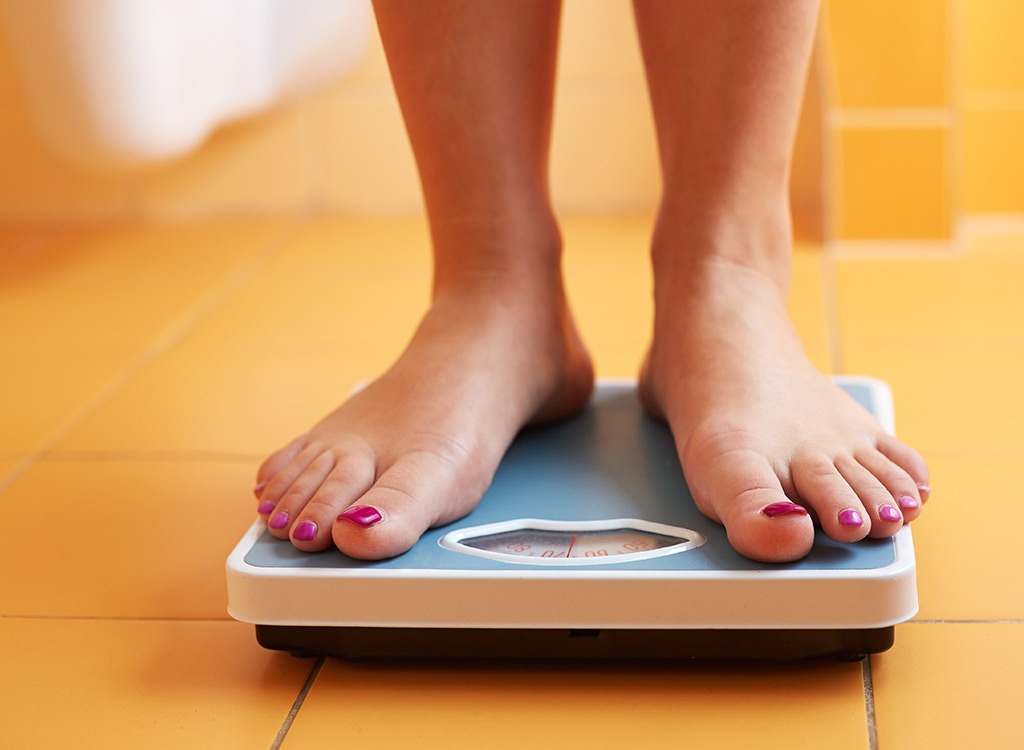
It probably comes as no surprise to you that drinking soda has been linked to obesity. While this may be partially due to the types of high-calorie foods that tend to accompany sodas and fizzy drinks, a single can of soda packs 140 calories but is almost guaranteed to be of no help when it comes to your hunger. Add a soda to every meal for 30 days and you could be gaining more than three pounds by the time the month is done. Related: Here's the one drink that's worse for you than soda.
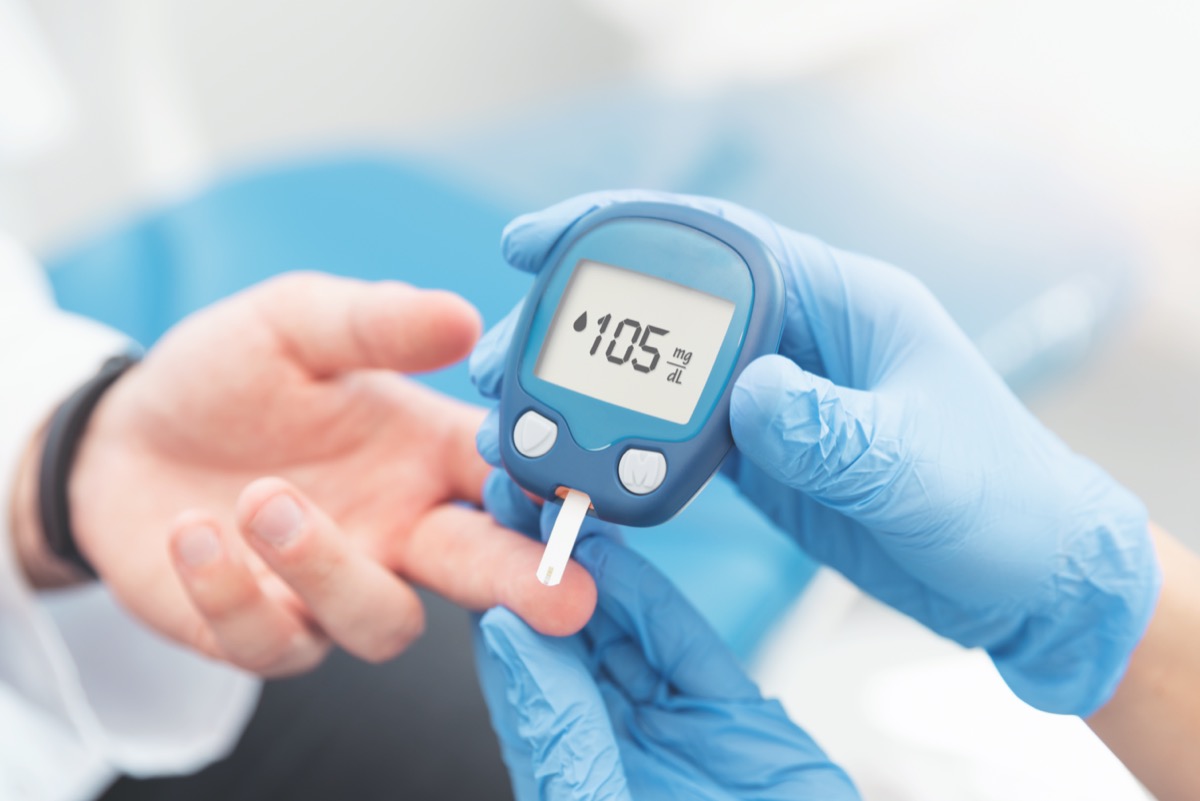
Think switching to diet soda is doing you any favors in terms of your blood sugar? Think again! Both regular and diet soda have been linked to an increase in type 2 diabetes. The sugar spike you get from soda forces the body to transform that sugar into fat in your liver. Over six months, the fat deposits in your liver may have increased by as much as 150%, increasing your risk factor for diabetes along the way. Similarly, research published in the Yale Journal of Biology and Medicine suggests that artificial sweeteners may actually increase your cravings for real sugar, putting you at greater risk for diabetes. Lower your risk of chronic disease starting today by avoiding these 50 worst foods for diabetes.

A single 12-ounce can of soda contains almost ten packets of sugar, coating your teeth and gums every time you crack open a can. In fact, multiple studies have shown just how deleterious soda can be to your teeth; left in soda for sufficient time, human teeth will actually dissolve. Unfortunately, despite the claims pushed by some toothpaste companies, tooth enamel can't be regrown after it's eroded—once it's gone, it's gone for good.
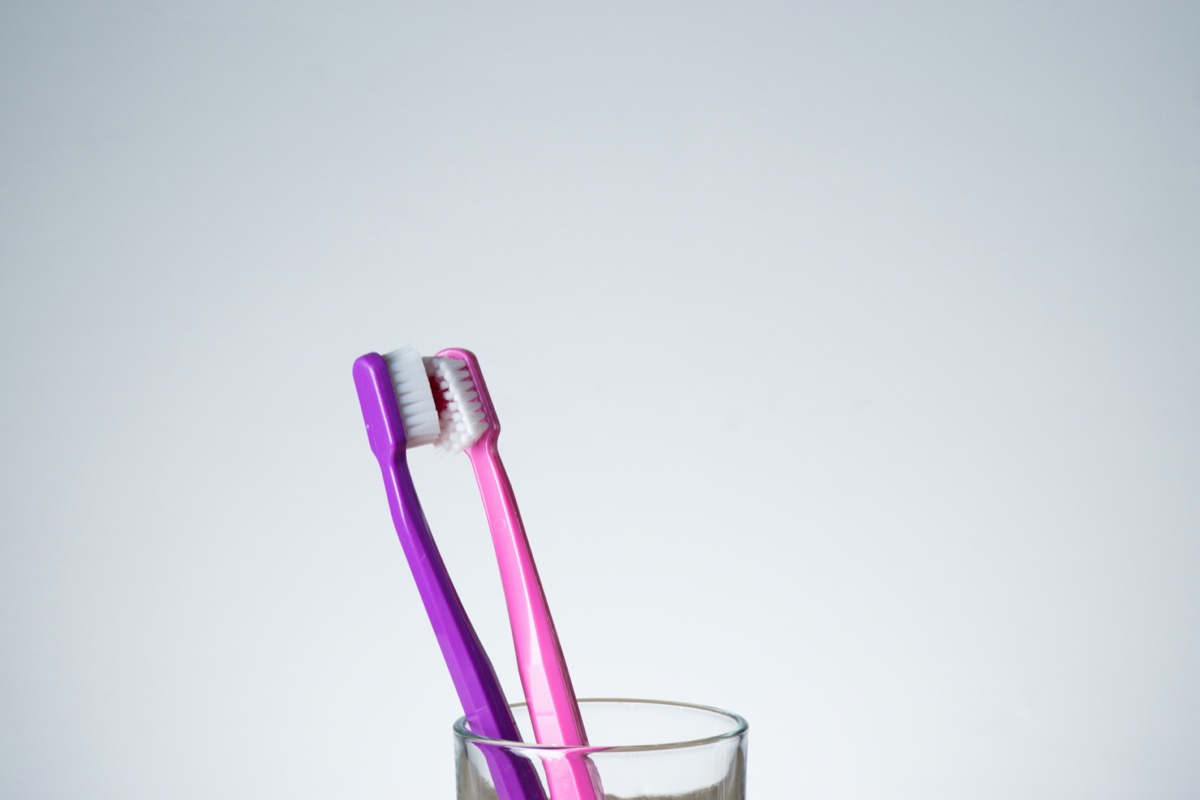
If you feel like your gum line is receding faster than your hair, your soda habit might be to blame. The sugars, preservatives and artificial colorings found in your average soda can get trapped beneath your gums. If that area isn't cleaned thoroughly, bacteria feeds on the trapped particles causing deterioration, infection, and the destruction of gum tissue, which is nearly impossible to regenerate. Fortunately, giving up soda now can reduce your risk of receding gums and keep that smile healthy and bright as you age. Related: 25 Foods You Had No Idea are Good for Your Teeth
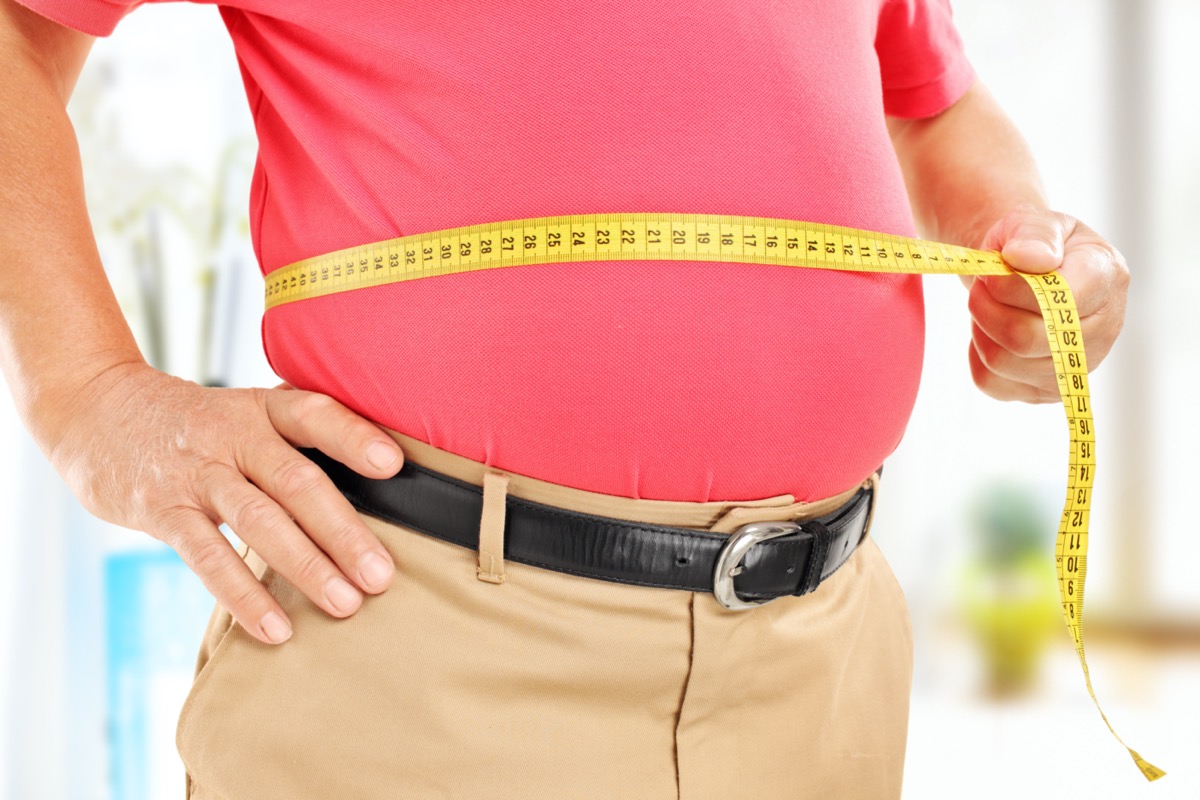
Sporting a spare tire? Blame your soda habit. The refined sugar in soda is quickly absorbed, causing your blood sugar to spike. This sudden surge in blood sugar triggers the production of insulin and can turn that sugar into fat—particularly those pounds around your waist—in no time. Fortunately, eliminating soda from your diet can save you thousands of calories and hundreds of thousands of grams of sugar each year, fighting that belly fat. Related: 15 Flat-Belly Secrets from a Nutritionist Who Lost 100 Pounds

Those aches and pains that won't go away might just be getting worse every time you put a sugary soda in your shopping cart. The American Journal of Clinical Nutrition suggests that women who regularly consumed sugar-sweetened soda have an increased risk of rheumatoid arthritis, so there's no time like the present to cut soda from your diet.

Often called the most excruciating pain this side of childbirth, kidney stones are the result of an accumulation of minerals in the kidneys over time, which eventually pass through the urethra. Unfortunately, those with regular soda habits are at an increased risk for this unpleasant condition; both excessive sugar consumption and dehydration are associated with increased risk of kidney stones, and soda just so happens to contribute to both. Related: The Best Food for a Kidney Cleanse, and Which to Avoid

You might not be the only one in your family affected by your soda consumption. The plastic bottles soda comes in often contain BPA, a chemical used to harden plastics, which has been shown to contaminate substances that come in contact with it. The result? Potential behavioral problems in your offspring—researchers at Columbia University, the National Center for Environmental Health, and the CDC have found a link between exposure to BPA and an increased risk of behavioral health issues.

Keep your heart healthy and your life long by giving up your soda habit today. The British Medical Journal suggests that drinking sweetened sodas may contribute to heart failure, and your risk for heart failure is closely associated with diabetes, obesity and uncontrolled blood pressure, all of which have been linked to the regular consumption of sodas and other sugary drinks. Related: 105 Sodas Ranked by How Toxic They Are

Your risk for stroke increases with each sip of soda you take. Soda is directly responsible for increased fat stores in the body, some of which can cause hardening of your arteries, including the ones close to your brain, increasing your stroke risk. The quickest and easiest way to improve your arterial health today is to put down that can of soda and opt for water or unsweetened tea instead.

Drinking sodas is directly linked to unhealthy dietary habits. Researchers at the University of Bordeaux believe that sugar can be as addictive as illicit drugs, triggering the same reward centers in the brain as amphetamines and opiates. Unfortunately, this means that a single soda can have a snowball effect — that one drink makes you crave more and more, leading to out-of-control sugar consumption in no time. Soda is also generally served with less-than-healthy meals, like fast food, creating food associations that are difficult to break.
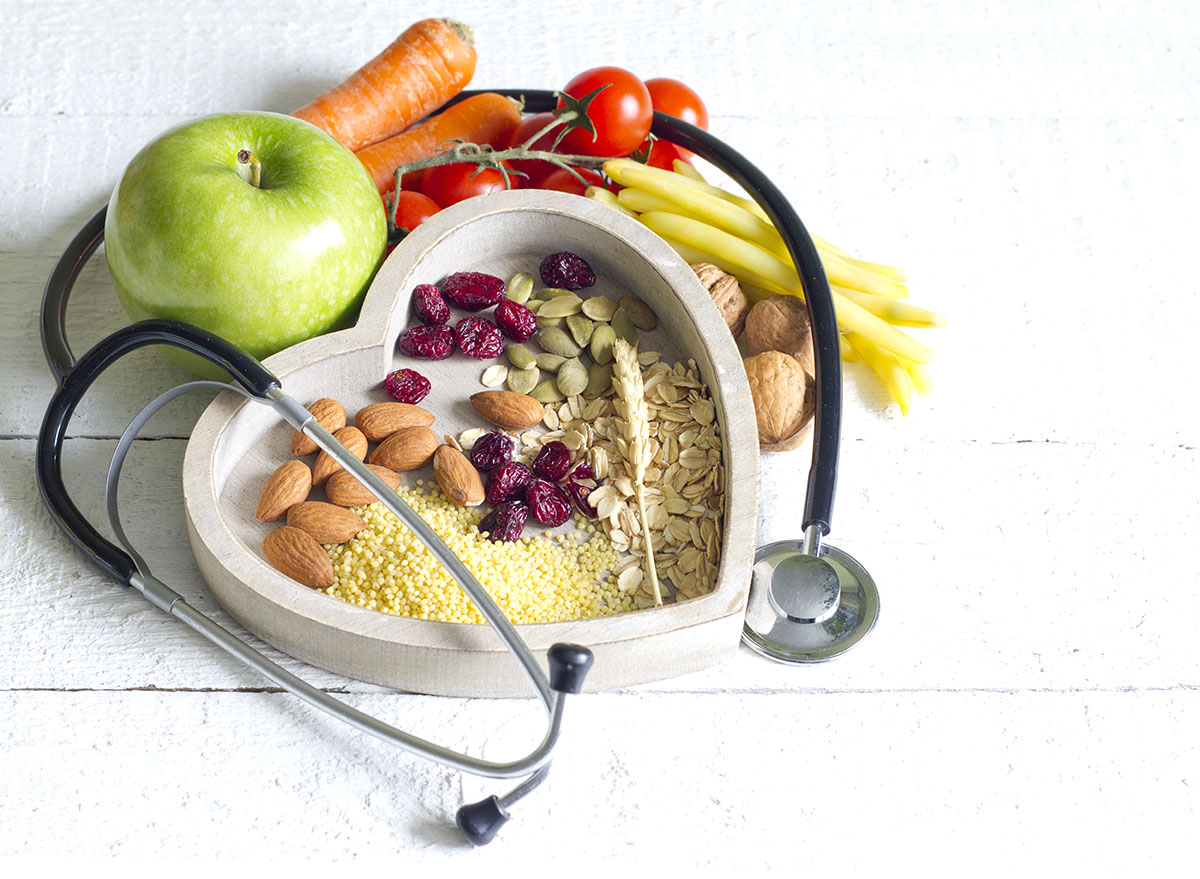
If you're eager to keep your cardiovascular system strong as you get older, now's the time to kick your soda habit for good. The Journal of General Internal Medicine suggests that soda drinkers are at a higher risk for stroke, heart attack, or death from vascular disease — in fact, even when controlling for other contributing factors to cardiovascular disease, like smoking, lack of exercise, and poor diet, soda drinkers were more likely to be affected by CVD than their abstinent counterparts.

Commit to lower cholesterol and a longer life by ditching those sodas from your diet today. A single can of soda has more sugar than you need in an entire day, and research published in the Journal of the American Medical Association suggests that a diet rich in sugar is linked to high levels of LDL, or "bad" cholesterol, and low levels of HDL, also known as "good" cholesterol. Combined with the sugars that sneak their way into your diet by way of other foods, you are risking your health with every sip of soda you take.
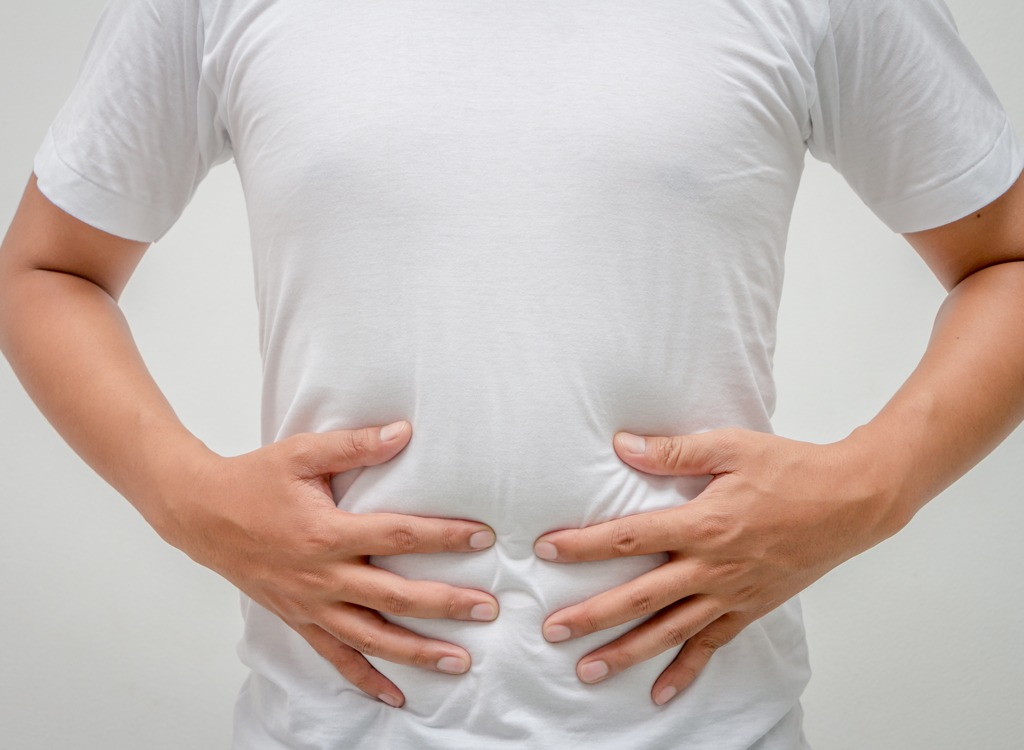
The gut bacteria living in your intestines can affect everything from your digestive health to your mental stability, making your gut health of the utmost importance to your overall well-being. Unfortunately, all that sugar in soda gives the bad bacteria in your belly plenty to feed on without providing much in the way of nutrition for the good bacteria that keeps you healthy. If you think diet soda is better, think again; a study conducted by the American Association for the Advancement of Science reveals your gut bacteria may react negatively and cause metabolic changes after being exposed to the artificial sweeteners in soda, putting you at increased risk for obesity, cognitive impairment, and digestive stress, among other health problems. Read more: 19 Foods That Cause Bloating and Gut Discomfort

All those fun colors in your soda may be contributing to your cancer risk. The caramel coloring used in some colas and other non-clear sodas like root beer is made from ammonia and has been shown to cause cancer in mice. Unfortunately, clear sodas aren't off the hook, either—from sugar to preservatives to artificial flavors, their ingredients can significantly increase your risk of a variety of cancerous conditions, including colorectal cancer. Reduce your risk of this deadly disease with these 10 Best Diets to Fight Cancer.

When your body's leptin receptors are working effectively, they tell you when you've had enough to eat and help you maintain a healthy weight. However, when you drink soda, they're not such a sensitive tool; the American Journal of Physiology states that overconsumption of fructose, a sweetener used in many sodas, has been linked to a shutdown in leptin response. Over time, this can lead to hunger, weight gain, diabetes, and put you at increased risk for a number of chronic illnesses.

If you're looking to maintain your youthful glow and good health, now's the time to ditch soda for good. Soda contains phosphates and sugars which have been shown to accelerate the aging process at the cellular level. Soda's dehydrating caffeine, puffiness-promoting sugar, and harmful chemical components can also have an aging effect on your skin, making it dry and putting you at increased risk for wrinkles and fine lines.

Soda's shelf-stability may come at a serious cost to your health and fertility. Certain citrus sodas contain brominated vegetable oil, also known as BVO, an additive that maintains soda's flavor and appearance. This ingredient, which has already been banned in Japan and Europe, has been linked to infertility and early onset puberty, so if you're eager to have biological children in the future, it's never too soon to stop your soda habit. If you're eager to conceive, make sure to avoid these 10 terrible foods for fertility.

It turns out BVO's crimes against the human body don't end at messing with your fertility. Researchers at the University of California, Davis Medical Center have linked excessive consumption of sodas containing BVO to an increased risk of bromism, a condition that wreaks havoc on the central nervous system, contributing to memory loss, muscle weakness, fatigue, and mental health issues.

Improve your heart health today by ditching the soda from your diet. The BVO found in many fruit sodas has been linked to an increased risk of heart lesions in rats, putting you at risk for a wide variety of scary health issues each time you indulge. Save yourself the trouble and stick to plain water or seltzer if you're battling cravings for the fizzy stuff. For more ways to improve your health, avoid these 50 foods that can cause heart disease.

Don't think you're hiding from BPA by opting for canned soda instead of the bottled stuff. Aluminum cans are often lined with BPA, which has been linked to reproductive toxicity and cancers. If you're eager to cut your cancer risk and preserve your fertility, it's time to put the soda down now.

Sodas are loaded with sweeteners of both the artificial and natural varieties, both of which are known to trigger migraine headaches. When coupled with the dehydrating nature of many caffeinated sodas, you've got yourself a recipe for a pounding headache that even over-the-counter painkillers may not be able to touch.

If you think you're hydrating by drinking soda, you're likely off-base. The caffeine in many sodas has a diuretic effect, causing dehydration if you don't adequately supplement with extra water. Over time, this can lead to a slower metabolic rate, electrolyte imbalances, water retention, and even heart arrhythmia. Hydrate and get healthy with the Best-Ever Foods That Fight Fat!

Soda isn't just contributing to your body's less-than-healthy appearance, it's also changing you at a cellular level. The preservatives and artificial sweeteners contained in diet soda have been linked to cellular damage and the increased growth of cancerous cells, ruining your health from the inside out.

Sneezing your way through allergy season? It might be your soda habit. Highly allergenic sodium benzoate has been removed in many sodas, only to be replaced by a lesser evil called potassium benzoate. Unfortunately, this is no boon to allergy sufferers: both have been linked to hives and asthma. Don't make your allergy symptoms worse with these foods!

If you've been experiencing issues with your lymphatic system, from blockages to cancer growth, your soda habit could be a contributing factor. Research suggests that the artificial sweeteners in soda have been linked to an increase in lymphoma, so if you have a family history of the disease or are eager to reduce your risk, cutting soda is a good first step.

You won't find happiness at the bottom of that can. Sodas are high in fructose, which can react negatively with the amino acids that accompany our happiness chemical, serotonin. Fructose damages those amino acids which then become unavailable, thereby reducing the amount of serotonin in the brain. Over time, this can contribute to your depression risk. Soda's not so sweet after all, is it?

Drinking alcohol isn't the only way you're harming the health of your liver. The excess sugars in sodas have been linked to non-alcoholic fatty liver disease. Because sodas contain exorbitant amount of sweetener, the body cannot adequately process it, turning it into fat in the liver. Over time, this can lead to fatty liver, which can increase your risk of metabolic syndrome and early death over time. Get your liver healthier in no time with these Healthy Ways to Detox!

If you're having trouble sleeping, it might be time to reevaluate your soda consumption. Sixteen ounces of a popular diet soda contains a whopping 45 milligrams of caffeine, which can take your body nearly half a day to metabolize. If you're drinking soda with dinner, you might find yourself tossing and turning when it's time for bed.

A fussy baby does not a happy parent make. Unfortunately, caffeine can pass from mom to baby during breastfeeding, increasing sleep disturbances, irritability, and digestive distress in infants, but cutting out those caffeinated sodas may be able to help.
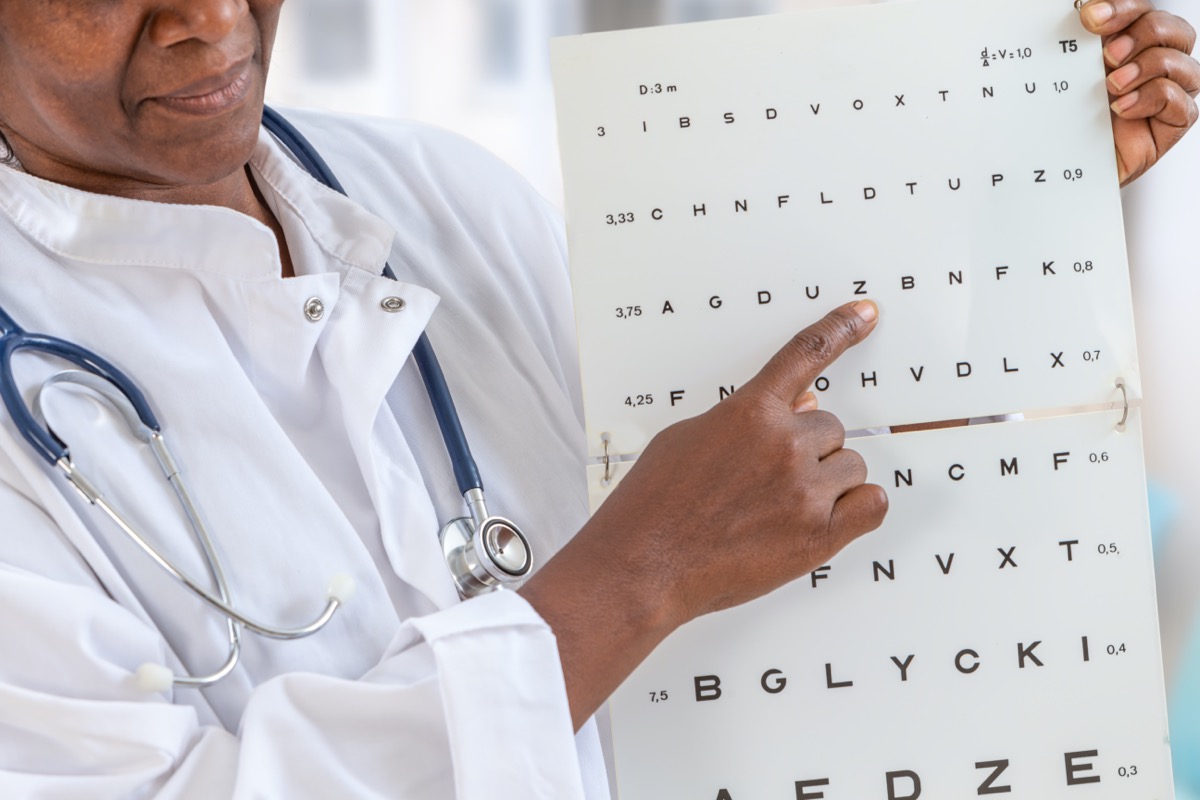
Your poor vision could be the result of your soda habit. Drinking soda causes your blood sugar to spike rapidly, which may cause the lenses of your eyes to swell, impacting your vision, even if you do not have diabetes. High blood sugar also increases your risk for diabetes, a condition often associated with changes in eyesight, including blurred vision and macular degeneration. Related: The Best Foods for Eye, Hair, and Skin Health.

That newly shiny spot on your head might be the result of your soda consumption. Soda consumption is a major contributing factor in the increase in diabetes diagnoses, which can cause hormonal variations that can increase your risk for hair loss. Additionally, research suggests that diabetes is often a predisposing factor for alopecia and thyroid disease, both of which can contribute to your thinning hair.

Healthy bones and soda don't mix. Research published in the American Journal of Clinical Nutrition reveals that cola consumption is associated with reductions in bone density, making you more susceptible to fractures and mobility loss as you age. Strengthen your bones today by avoiding the Foods That Put You at Risk for Osteoporosis!

All those bubbles in your soda have to go somewhere, and unfortunately, your gut is often their final resting place. Gas builds up in your gut, causing bloating that can make your abdomen distended and uncomfortable, and then is often let out in less-than-socially acceptable ways.

That burning in your chest might be your soda habit coming back to haunt you. Carbonated soft drinks cause your stomach to bloat, which can often cause the acid in your stomach to come back up into your throat. Coupled with the acid-promoting caffeine found in many sodas, you're increasing your risk of heartburn, upper digestive tract ulcers, and even certain types of cancer every time you crack open a can.

If you're struggling with digestive ulcers, your soda habit may be a contributing factor to your discomfort. Both caffeine and carbonation can contribute to the irritation of your stomach lining, putting you at greater risk for ulcers and making those you already have worse. Add in the inflammation-promoting artificial sweeteners and colors used in many sodas and you've got a recipe for chronic ulcers and other serious digestive health issues.

Your love for soft drinks may be contributing to your less-than-powerful libido. Sodas are directly responsible for increasing cholesterol levels and blood pressure, contributing to poor circulation and erectile dysfunction. Research also suggests that many of the other conditions associated with soda consumption, like diabetes, obesity, and systemic inflammation, can increase your risk for erectile dysfunction as well. Related: Healthy Foods that Fight Erectile Dysfunction.

Keeping your liver healthy starts with laying off soda. Artificial sweeteners, like those found in many diet sodas, have been linked to inflammation of the bile ducts, which can lead to billary cirrhosis. Over time, this condition can cause scarring on the liver and reduced liver function, putting you at risk for jaundice, swelling, pain, and early death.
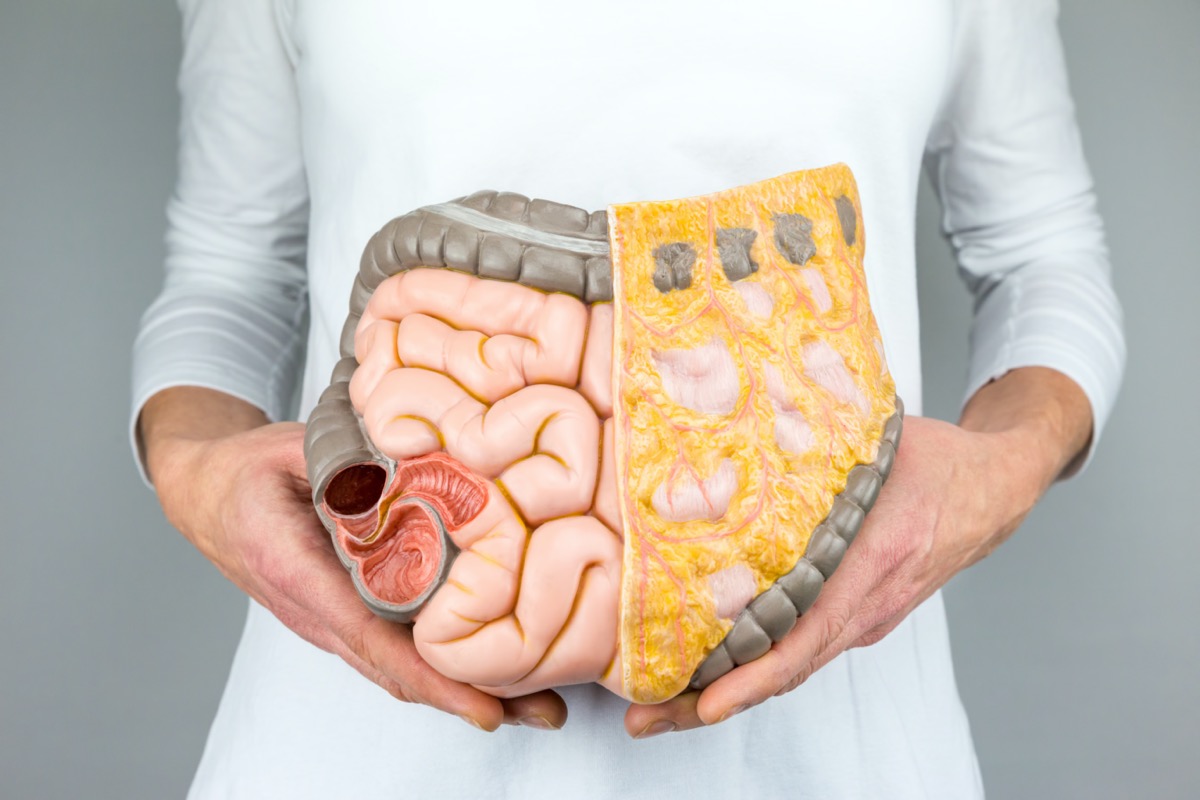
Want to reduce your cancer risk? Start by decreasing your soda consumption. Certain artificial sweeteners found in soda, like saccharin and sodium cyclamate, have been linked to cancer in lab rats. Soda may also increase your risk of obesity, which can be a contributing factor in a number of cancers that affect everything from your bladder to your brain.

The chemicals in sodas have been linked to neurological disturbances, including seizures. Scarier still, the FDA reports that the aspartame found in some diet sodas can be converted to formaldehyde in the body, sufficient levels of which can be carcinogenic and may contribute to your risk of developing a brain tumor.
Consequences of Drinking Too Much Diet Coke
Source: https://www.eatthis.com/soda-weight-gain-diabetes-cancer-cholesterol/